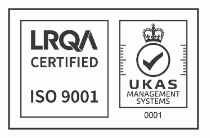Recent weeks have seen a lot of global attention revolve around the events of COP26, the 26th UN Climate Change Conference of the Parties that was hosted in Glasgow, Scotland between 31st October and 13th November 2021. The ambitious summit brought together representatives from 197 countries to accelerate global progress towards the objectives of the Paris Agreement signed in 2015 at COP21, to agree on definitive and clear actions to address climate change on a worldwide scale.

The outcomes of the summit garnered a significant degree of controversy, particularly due to a last minute intervention by India to amend the wording of ‘phasing out’ the use of coal to a ‘phasing down’. This was a disappointing result for many given that coal has been identified as the single biggest contributor to climate change. Still, the Glasgow Climate Pact signed at COP26 is the first climate deal to explicitly identify the significance of coal and plan to reduce its usage.
The summit had other positive outcomes, including reaffirming the agreement to limit global temperature increases to no more than 1.5 °C. Furthermore, over 140 countries pledged to work towards reaching net-zero emissions, which amounts to 90% of the world’s total GDP. An agreement was also reached between over a 100 countries, aiming to reverse deforestation by 2030.
The Glasgow Climate Pact, while falling short from the necessary action to address climate change, is still a great leap forward in the global fight against the deterioration of our planet. The agreements made mirror the objectives already set by the European Union (EU) to live up to the Paris Agreement and the UN Framework Convention of Climate Change. The European Green Deal, first presented in 2019, set the target of cutting down greenhouse emissions by 55% by 2030, and to achieve a climate-neutral Europe by 2050.

This week will also see the European Commission organising the third EU Clean Air Forum, between the 18th and 19th of November. The Forum, this year hosted in Madrid, will target policy-makers, stakeholders and experts to assess the revision of EU standards and address effective implementation of European and national initiatives aimed at clean air. The Forum will focus on themes such as zero pollution, air quality and health.
More information on the forum as well as a live-streaming of the event can be found here.
The dedication of the EU towards addressing climate change and safeguarding the environment is affirmed through its many funding branches aimed at financing climate change adaptation and mitigation, clean energy transition, circular economy, and biodiversity conservation amongst many other objectives. The LIFE Programme, created in 1992, is one of the older programmes aimed at financing green environmental projects, with a current budget of €5.4 billion over the 2021-2024 period. However the European Green Deal itself has pledged over €1 trillion to the aforementioned objectives, though an official dedicated work programme is yet to be presented. These environmental goals however feature as horizontal objectives of many other funding programmes, including most notably Horizon Europe, the €95.5 billion programme dedicated to research and innovation.
Here at AcrossLimits, we wholeheartedly support the objectives of the European Green Deal and the Glasgow Climate Pact, and have ourselves been involved in numerous environmental projects such as NGEnvironment – an Erasmus+ project aimed at promoting active citizenship and NGO activities in order to support green and social policies with environmental benefits; and H-CLOUD – a Horizon 2020 project aimed at bringing together stakeholders from all over to develop a common European Cloud agenda with a strong focus on pursuing green ICT at a European level.
If you would like to know more about these projects and how you can get your own project financed through these programmes, please let us hear from you at: [email protected]
 Alexander Camilleri
Alexander Camilleri
Project Officer at AcrossLimits



